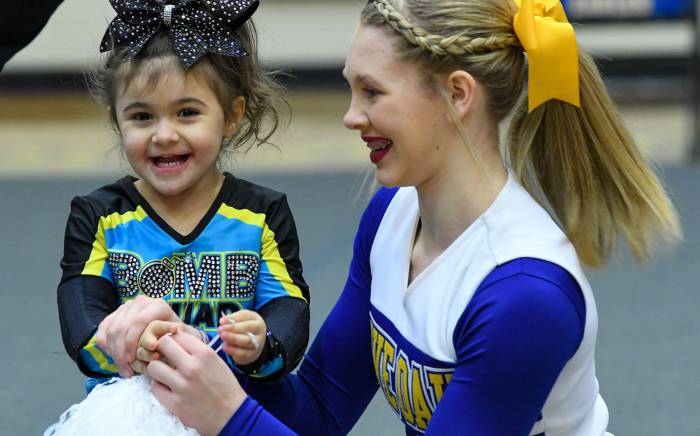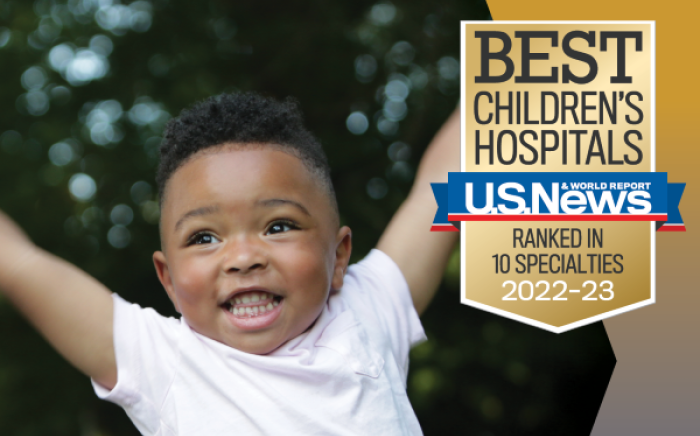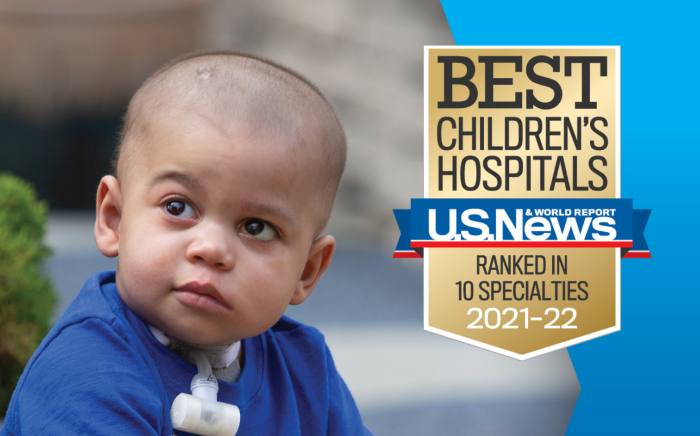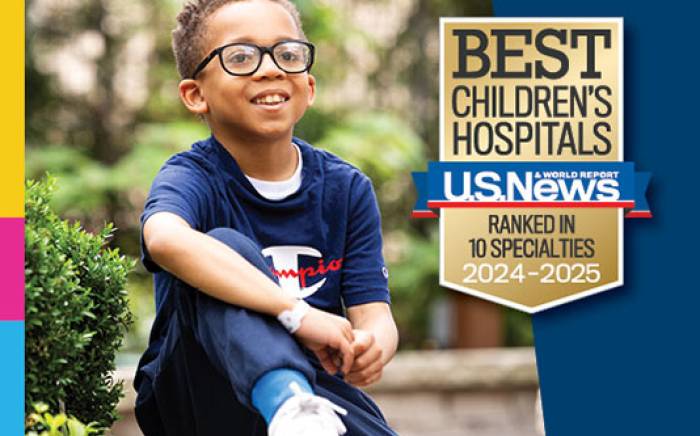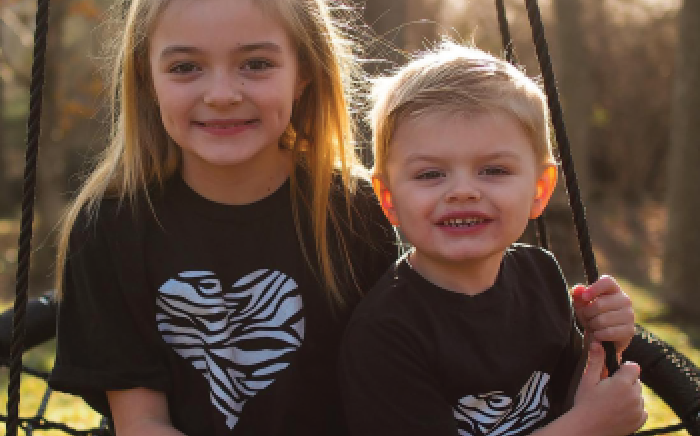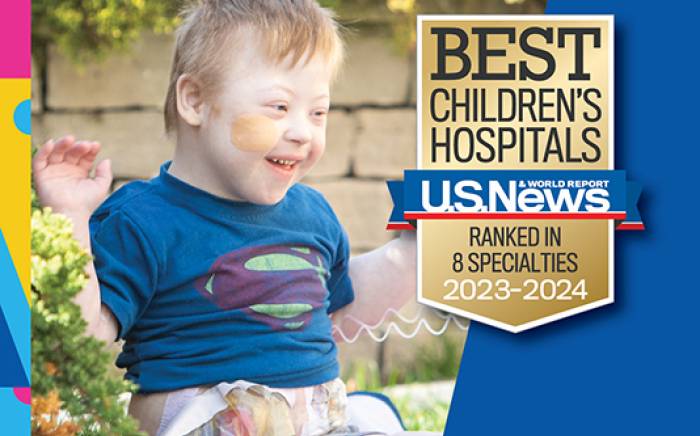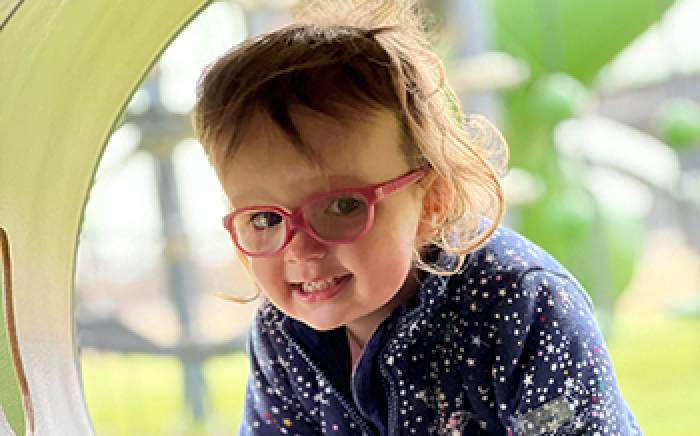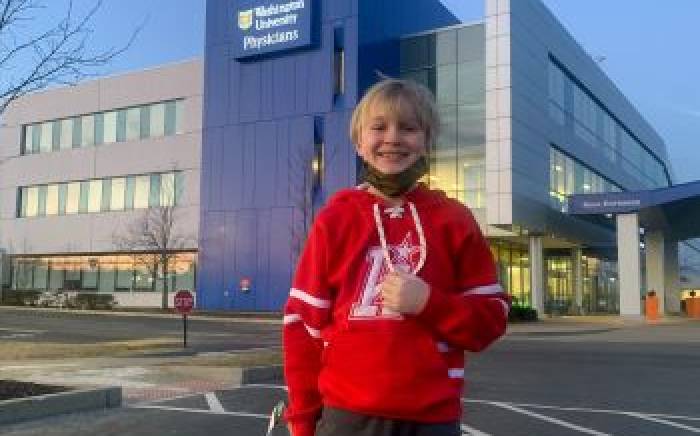
Madi Allen’s life took a dramatic turn on Feb. 21, 2011. When the 12-year-old started feeling ill with a cough, her mom, Shelle, suspected flu. By the next day, Madi’s breathing became rapid and shallow so she was rushed to the hospital in her hometown of Jacksonville, Illinois, where was diagnosed with pneumonia.
Yet Madi’s breathing continued to worsen so she was quickly transferred to a larger hospital just 45 minutes away. By the time she arrived there, she was in respiratory distress and needed to be intubated to breathe.
Within hours, Madi’s kidneys and lungs began failing. Madi was immediately airlifted to St. Louis Children’s Hospital to be placed on ECMO. ECMO (extracorporeal membrane oxygenation) is a form of life support that does the work of the heart and lungs while the body recovers from illness. St. Louis Children’s is the closest hospital with ECMO technology.
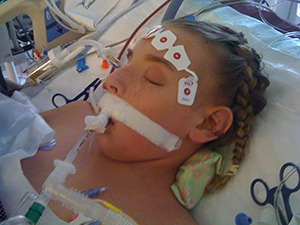
Diagnosed with influenza B and a dangerous resistant bacterial pneumonia, Madi was in a medically induced coma for five weeks. She spent two months in the pediatric intensive care unit (PICU) at Children’s Hospital and another month on the rehabilitation floor where she had to relearn to walk and even brush her teeth.
“Too Much, Too Fast”
When she finally went home, Madi was fragile—20 pounds lighter on an already petite frame. She couldn’t eat and needed a catheter to receive nutrients. Shelle was responsible for hooking up the catheter and keeping it sterile to prevent infection. She also took Madi five days a week to occupational, physical and speech therapies.
“I was terrified caring for her at home,” Shelle says. “I stayed up all night and watched her to make sure she was breathing. I was afraid I would miss something and felt everything was on my shoulders.”
As the primary caregiver, Shelle struggled with exhaustion, stress, anxiety and skyrocketing blood pressure. “Fear was taking over my life,” she says.
She eventually sought therapy and was diagnosed with a form of post-traumatic syndrome disorder (PTSD). “My job is to protect my child,” she says. “In the hospital, I had to relinquish all control to doctors and the team. Then when we went home, all the care was thrown back on me. If felt too much, too fast.”
She expressed her concerns to her former PICU nurses at Children’s Hospital and a seed was planted.
The Birth of Better Follow-up Care
When Mary Hartman, MD, MPH, pediatric critical care specialist, and her colleagues recognized the gap in the continuum of care, they sprang into action and began investigating a better way to help families by establishing a Neurocritical Care Clinic at St. Louis Children’s Hospital.
Launched 2017, the Neurocritical Care Clinic is a follow-up program for children who have been in the PICU. The program is one of the few in the country and the only one in the region.
Dr. Hartman and her colleague’s felt strongly that PICU’s responsibility didn’t end at PICU discharge. “Our program felt responsible to ease the transition for families—the program was born from a sense of duty.”
Dr. Hartman asked Shelle to join an advisory committee for the program to share what parents want and need and to offer feedback. Shelle’s input has helped shape the program as it continues to expand.
The program began with the group at highest risk of neurocognitive or neuropsychological issues such as those children who have had brain injuries from stroke, seizures or trauma,” Dr. Hartman explains.
“We found as families were transitioning home, they had a huge adjustment. They go from a supportive, intensive environment surrounded by health care professionals to being on their own at home as they deal with continuing issues. Parents were often frightened and were struggling with their own psychological trauma from their children’s illnesses.”
Dr. Hartman and three other colleagues in neurology and neuropsychology initially ran the program on their own time on a shoestring budget.
“I started walking through the ICU to start enrolling patients in the program,” Dr. Hartman says. “My partners and I created clinic space and time for patients and crafted instruments to do tests for psychological symptoms such as depression, anxiety or PTSD. We also performed other screenings and worked to identify needs and resources for families. We demonstrated that families valued the care we offered as an important part of their child’s recovery.”
That progress and feedback opened the door to seek additional funding to expand the program.
Success for Parents and Patients
With passion and conviction, Dr. Hartman pitched the idea for a formalized Neurocritical Care Clinic to the division chief of critical care medicine and ultimately to St. Louis Children’s Hospital Foundation. She also asked for support for a social worker and an education specialist for the team. The program’s benefits to families easily earned Foundation support.
The Neurocritical Care Clinic continues to see tremendous success with an eye on further growth. Since the program began three years ago, more than 100 children and families have been helped.
“More than 80% of children who come through the clinic leave with new recommendations related to school or for other therapies or medications,” Dr. Hartman explains. “We’re helping to arm parents to advocate for their kids at school. Our role is to be their champion.”
After traumatic brain injuries or other trauma that leads to a stay in the PICU, children often have lingering issues with sleep, anxiety, or school. “This can be difficult for parents to manage,” Dr. Hartman says. “When we tell them that we will shepherd them through their child’s return to school, you can see the look of relief on their faces. It’s such a joy to be able to tell parents they aren’t in this by themselves. The program is designed purely to benefit families. I feel privileged to be part of it and proud to be paving the way for others.”
Several other hospitals have inquired about how to create a similar program. “Not many hospitals are able to offer this clinic but we can because we have the generous support of donors to St. Louis Children’s Hospital Foundation,” Dr. Hartman says. “This support allows us to tell our young patients that they’re our personal responsibility until they become adults. It’s pretty unique to offer that continuity of care throughout childhood.”
Through the program, the team makes sure parents are cared for, too. “We’re interested in how the parents are doing,” Dr. Hartman says. “When they come for follow-up, I sit down and talk with them in earnest. Almost every time, moms will cry and will share how scared, exhausted and sad they are. We help them feel less burdened and let them know they’re not alone. This program is as much for the parents as the kids.”
For patients who have traveled from out of town, the team also helps set up similar follow-up care with the patients’ community resources.
The follow-up rate through the Neurocritical Care Clinic is 90%, a high rate for any follow-up care program. “The reason the program succeeds is that we spend so much time getting to know families when children are inpatients,” Dr. Hartman says. “Then their follow-up appointment is like a homecoming. We share lots of hugs. They know us and know we genuinely care about them and how they’re doing.”
Moving On to a Bright Future
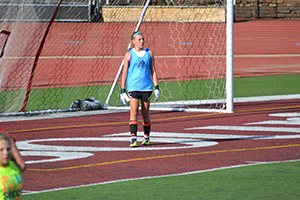
Today, Madi is a 21-year-old college senior who plays goalie for her school’s soccer team and plans to pursue a career in juvenile probation. She has successfully learned to adapt to her lingering health issues with lung function and short-term memory.
“Madi is bright and has learned to advocate for herself,” Shelle says. “We’re both in a good place so I feel more comfortable letting her go—she plans to move to Texas after college graduation.”
Shelle is happy her input has helped create the Neurocritical Care Clinic. “It’s great to be part of something positive after a traumatic experience that makes life easier for other families.”
To speak to a member of the Neurocritical Care Clinic team, call Children's Direct at 800.678.HELP (4357).

